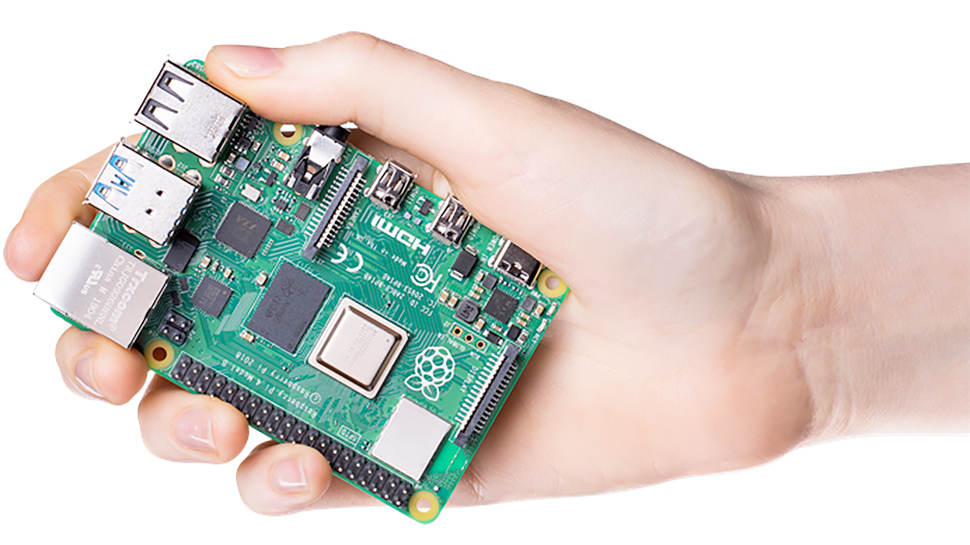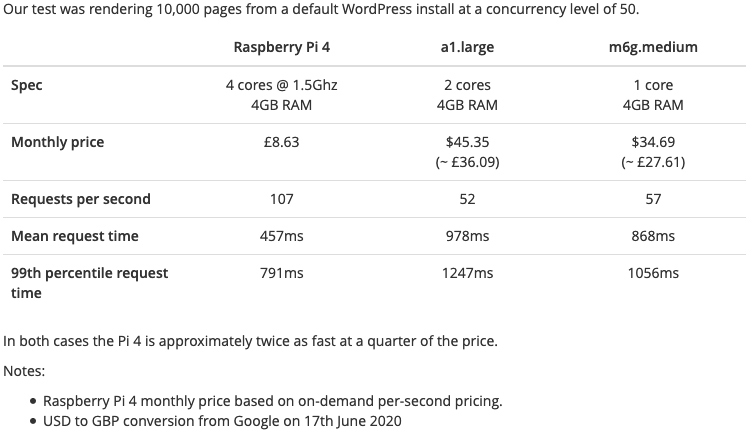A hosting company from a closet? Raspberry Pi web hosting is now a reality
Mythic Beasts now offers hosting powered by Raspberry Pi 4 for less than $10 a month

The Raspberry Pi single-board computer was designed primarily for teaching and tinkering some eight years ago, but since 2012 the single board computer (SBC) has been applied to a wide variety of applications outside of the education world.
Mythic Beasts, the company that provides web hosting services to the Raspberry Pi Foundation, recently started to offer hosting powered by a Raspberry Pi 4.
Several weeks ago, the Raspberry Pi Foundation decided to try running its website on a Raspberry Pi 4-based cluster featuring 18 SBCs (quad-core SoC at 1.5 GHz, 4 GB of RAM). 14 boards were used as dynamic LAMP (Linux, Apache, MySQL, PHP) servers, two were static Apache servers, and the remaining two served as a memcache-powered memory store.
- Check out our list of the best dedicated server hosting providers
- These are the best VPS hosting providers around today
- What are the different types of web hosting?
Raspberry Pi hosting
The organization says that the cluster worked good enough to serve around a million of visitors a day for a couple of days and could even handle the load when ‘tens of millions visitors’ headed to the Raspberry Pi 4 website the day of the Raspberry Pi 4 8 GB launch.
Following the successful experiment, Mythic Beasts began to offer hosting services using Raspberry Pi 4 SBCs. For £7.45 per month (~$9.40), Mythic Beats offers a Raspberry Pi 4 server with four cores, 10 GB of NFS storage, a 1 GbE NIC, and 1 TB of bandwidth.
According to Mythic Beasts, a Raspberry Pi 4 server performs substantially better than Amazon Web Services’s a1.large and m6g.medium Arm instances at a much lower price.

Raspberry Pi 4-based hosting is not without caveats. SD memory cards are not the most reliable storage devices these days, so if one fails, the whole node will need a manual intervention, which takes a lot of time.
Are you a pro? Subscribe to our newsletter
Sign up to the TechRadar Pro newsletter to get all the top news, opinion, features and guidance your business needs to succeed!
The Raspberry Pi Foundation offers a solution though: build a large Raspberry Pi 4-powered cluster with loads of redundant units and just disable the failed nodes when they break down.
- This Raspberry Pi laptop has a feature even the most expensive MacBook Pro lacks
Via CNX Software
Anton Shilov is the News Editor at AnandTech, Inc. For more than four years, he has been writing for magazines and websites such as AnandTech, TechRadar, Tom's Guide, Kit Guru, EE Times, Tech & Learning, EE Times Asia, Design & Reuse.